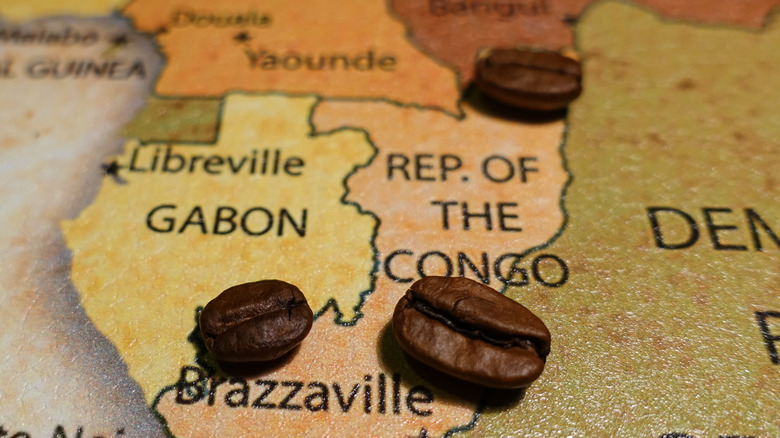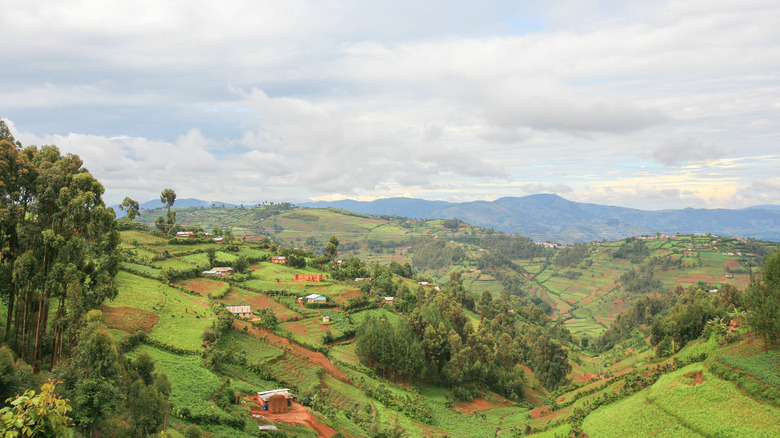The Delightful Taste Of Congo Coffee Beans Makes Them Worth The Effort To Find
The world of coffee is full of familiar countries of origin like Ethiopia, Costa Rica, or Sumatra, but there is one that is uniquely rare: the Democratic Republic of Congo (DRC). Located near other growing regions like Kenya and Rwanda, the central African nation has a long history of producing coffee, yet you won't readily find it when perusing the selection at your local coffee shop. If you can get your hands on Congolese coffee, though, it's a special experience. Eastern DRC, specifically the Kivu region, is often referred to as a "paradise for coffee," because of its combination of altitude, climate, and volcanic soils. These ideal characteristics give the region's coffee beans a distinct and highly sought after flavor profile.
Like any coffee growing region, the taste of Congolese coffee can vary from grower to grower, but it's frequently praised for its mixture of fruit notes, honeyed sweetness, and chocolate. Tropical fruit, lemon, and apple are frequently cited in tastings of coffee from the DRC, but with the incredible diversity produced by the area's climate, you may find single-origin varieties with creamier, nuttier flavors. Prominent acidity with a citrus kick is also a common characteristic of coffee beans from the DRC, particularly its Arabica beans. Both Arabica and Robusta coffee is produced, with Congolese Robusta being praised for its full flavor and lack of bitterness compared to other Robusta-producing regions, while Arabica from this area leans more mild and sweet.
The country's internal strife contributes to low coffee production
So, if coffee from the Democratic Republic of Congo is so good, why is it harder to find? The country used to be a major player in the 1970s, with over 120,000 tonnes produced per year. But civil war and rebel conflict in the region throughout the 1990s led production to drop to just 10,000 tonnes in the early 2000s. The turmoil cost over five million lives, and lingered into the 2010s, with high corruption, violence, and kidnappings making the industry dangerous. However, the allure of Congolese coffee has recently attracted outside investors, while the government is spending money to revitalize the industry. In the past few years coffee exports rebounded, although they are still far from the highs of previous century.
This investment and recovery means these coffee beans are no longer that hard to find. If you find yourself with fresh beans from the DRC to roast at home, keep a few things in mind. Higher altitude coffee like Congo Kivu is associated with fruitiness and acidity, which does well with higher temperature roasts that further accentuate those characteristics. Conversely, you can lower the temperature and extend the time, if you want a more balanced roast that highlights the beans' sweetness. For roasted beans, Amazon has a number of brands and options available, as do specialty retailers, like Fresh Roasted Coffee. It may still be pricier than your normal cup, but if you love coffee, it's worth trying.

